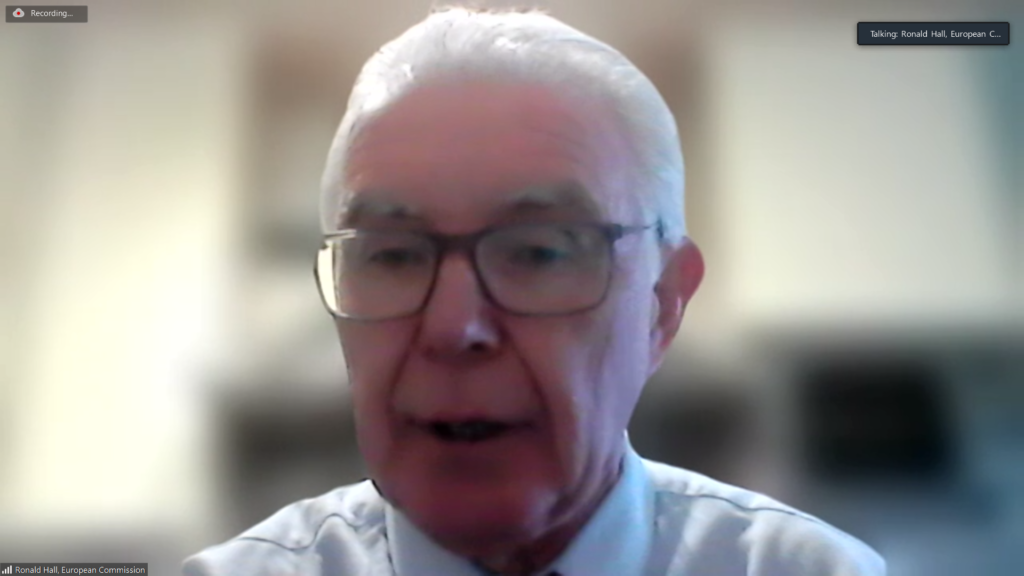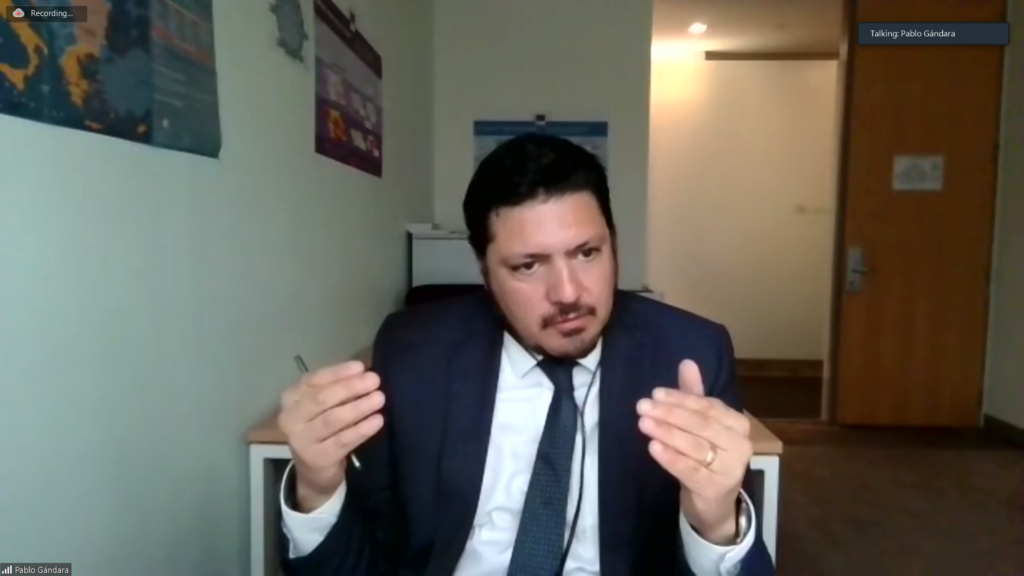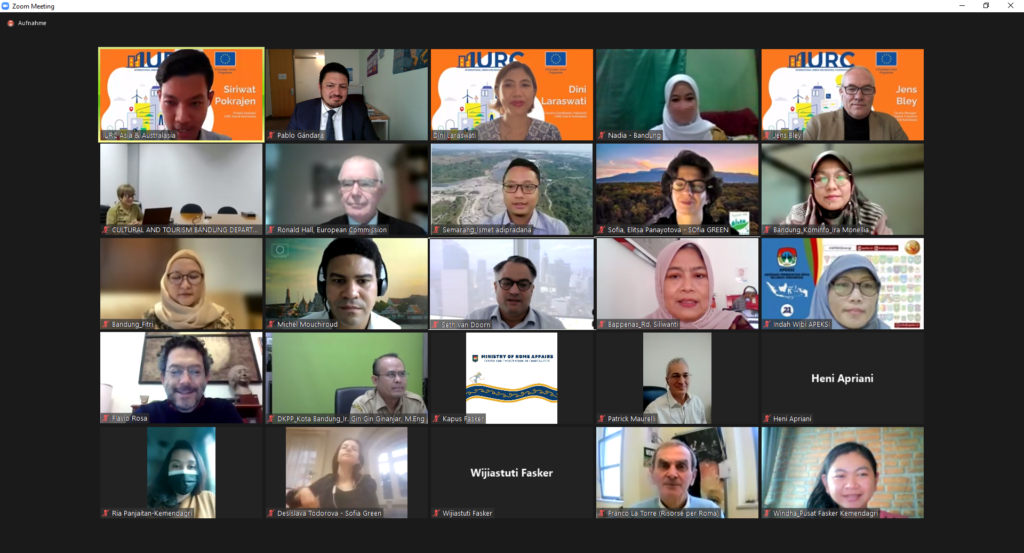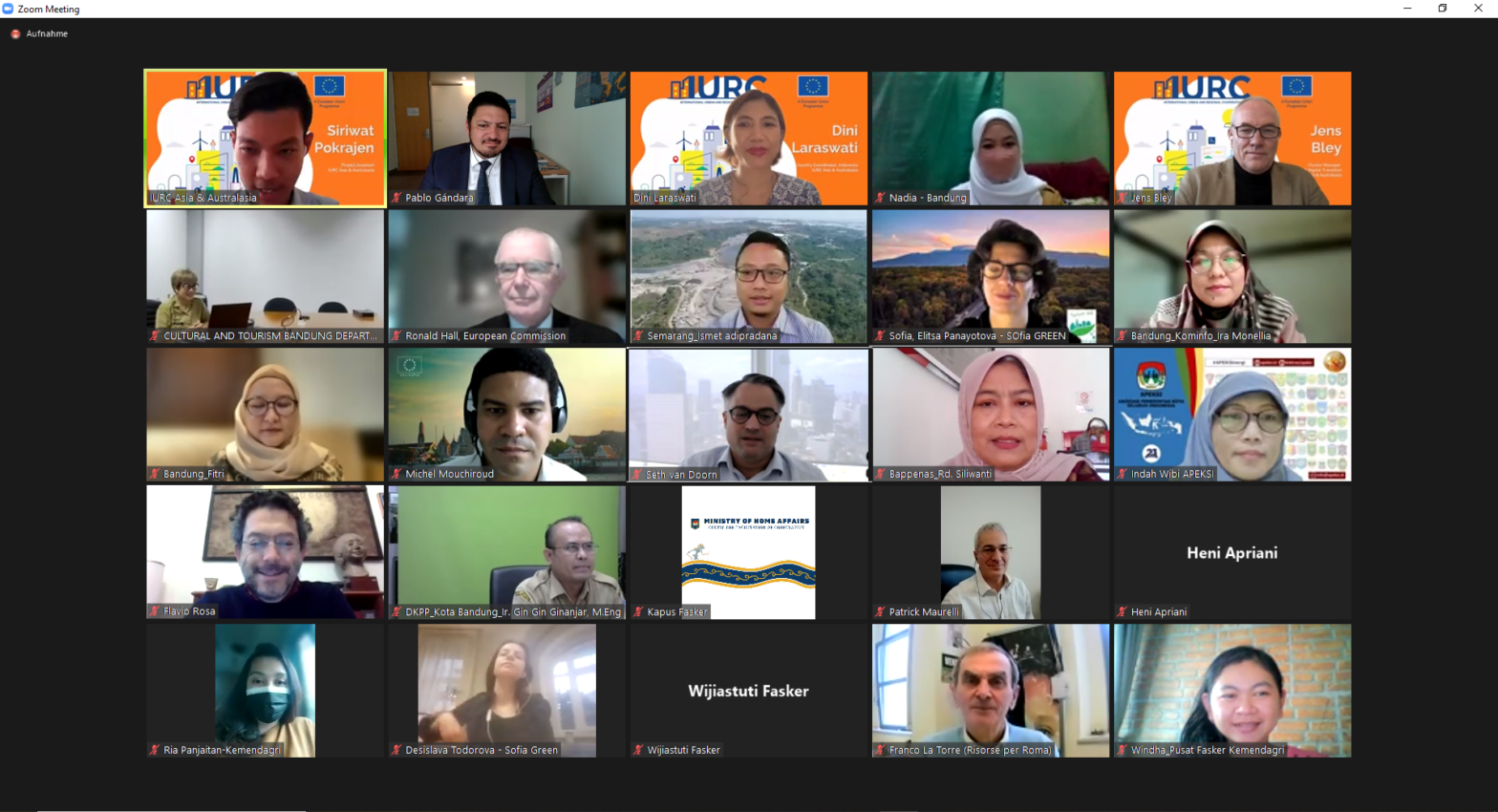On 23 November, IURC organised a kick-off meeting to launch cooperation between Semarang City and Bandung City in Indonesia and Sofia City in Bulgaria and Rome City in Italy, with Ms. Dini Laraswati, Country Coordinator in Indonesia, as the moderator. The meeting began with opening words from Seth Van Doorn, Project Manager – Foreign Policy Instruments, Delegation of the European Union to Indonesia. Mr. Van Doorn welcomed the participants and provided an overview of the city government’s role in promoting sustainable urban development. He highlighted that international cooperation under the IURC framework could encourage opportunities to foster effective multi-sectoral and multi-level exchange. He further stressed the benefits of joining the IURC programme: being in a global network that provides access to direct experiences and lessons learned and ultimately opens the doors for cities’ stakeholders to international markets.
Ms. Rd Siliwanti, Director for Multilateral External Funding, Ministry of National Development Planning of Indonesia (Bappenas), provided welcoming remarks from the Indonesian side, stating, “The IURC Programme is a great opportunity for Bandung City and Semarang City to learn and share the best practices and experiences in sustainable urban development with other cities in the global scale. Hopefully, this programme could be replicated in other Indonesian cities in the future. We believe that the EU’s support to urban development in Indonesia could enhance and strengthen the government’s effort to achieve the Urban Sustainability 2045 vision.”
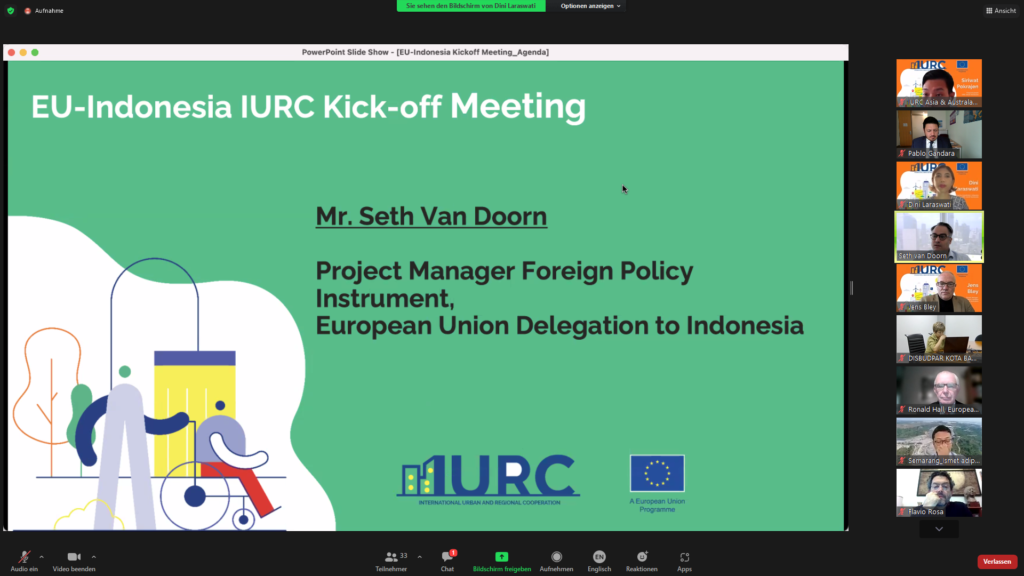
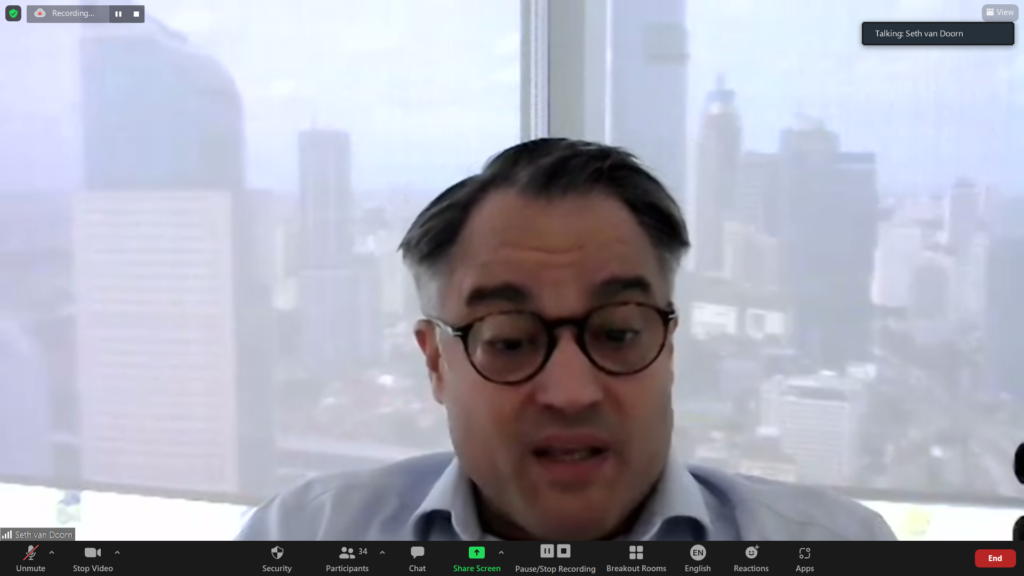
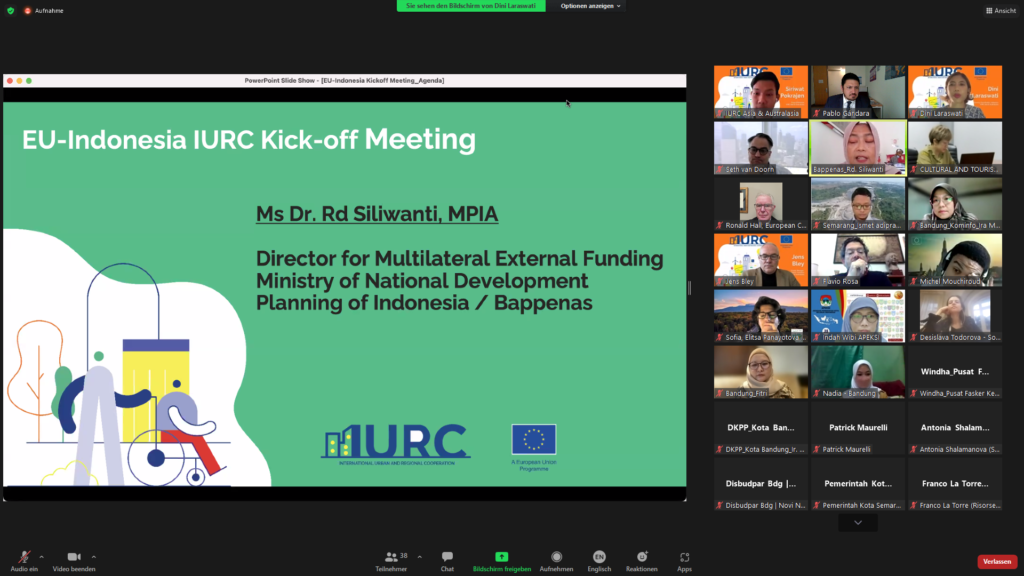

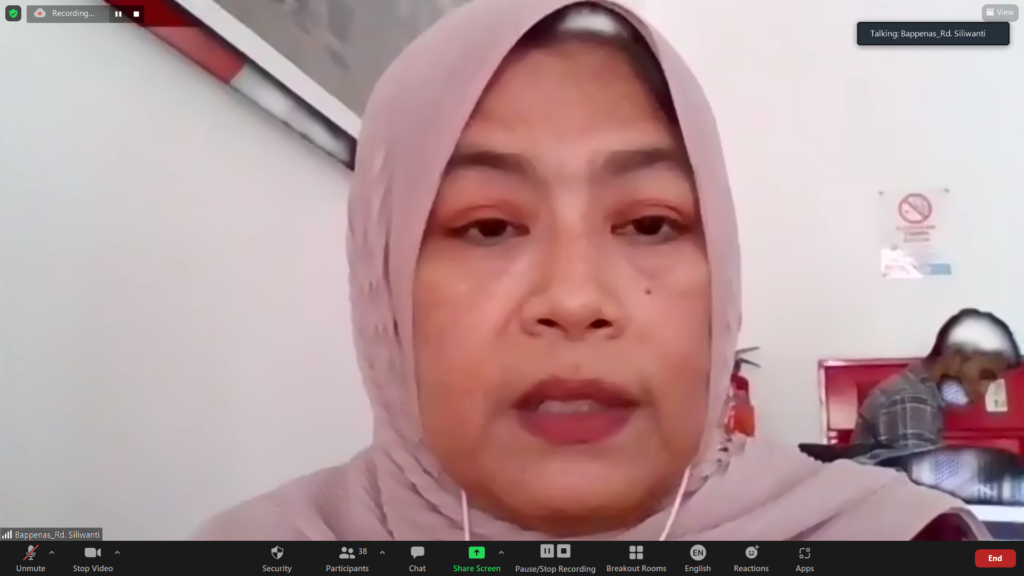
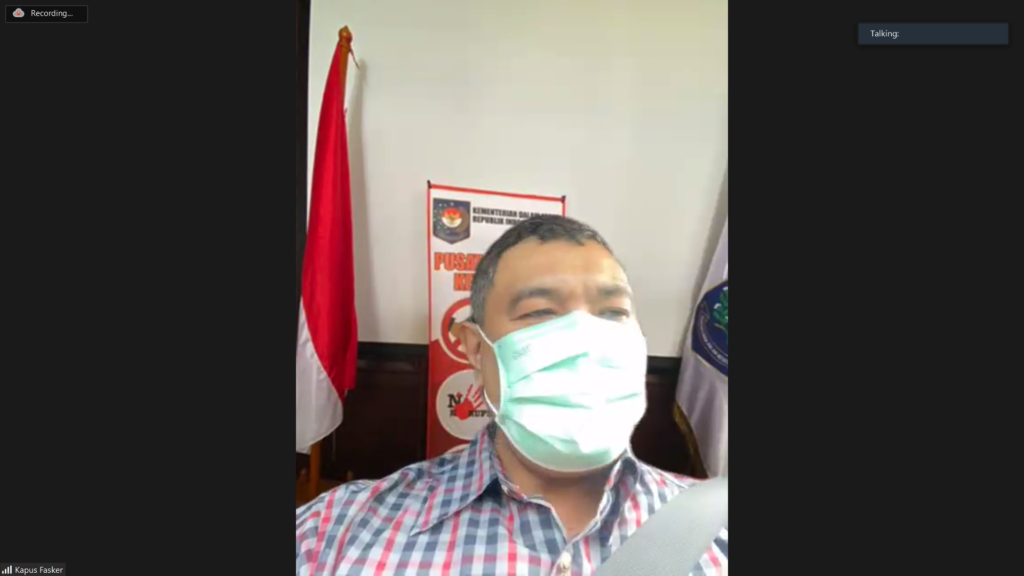
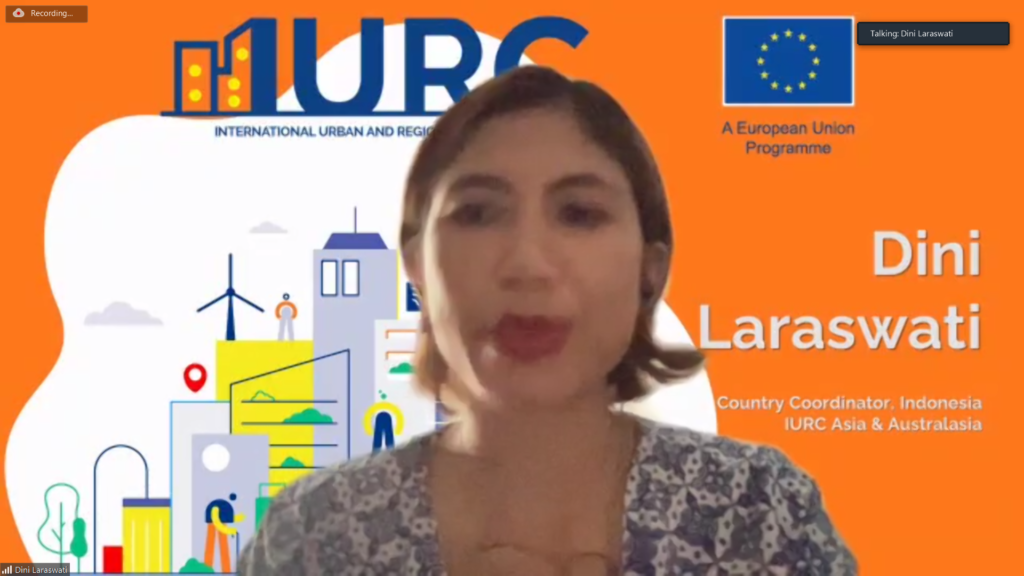
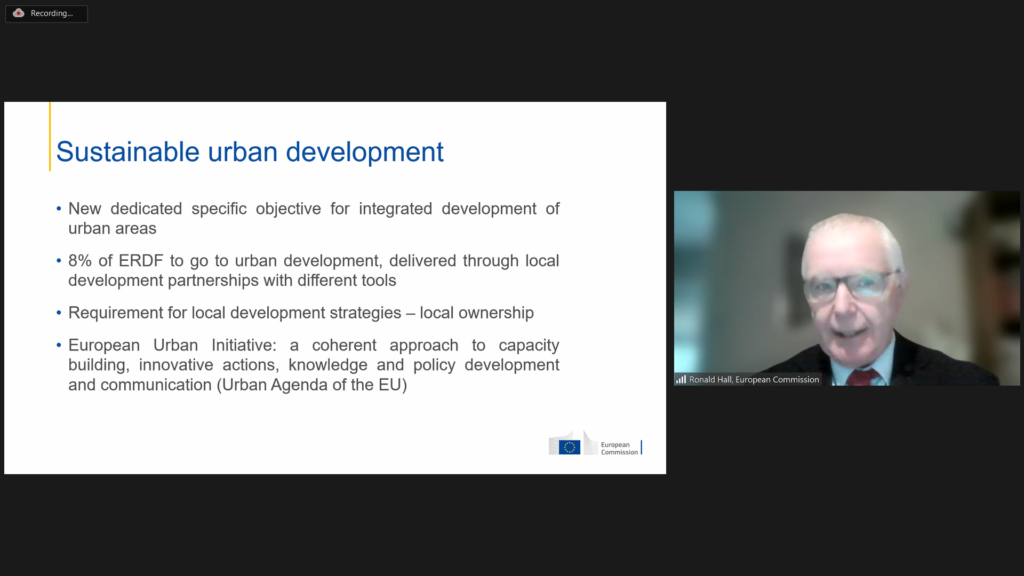
Further welcoming remarks were added by Dr. Heriyandi Roni, M.Si, Head of the Centre for Facilitation of Cooperation, Ministry of Home Affairs of the Republic of Indonesia. Mr. Roni delivered the message on the current urban challenges: the COVID 19 pandemic and climate change. Both challenges created new opportunities for the local governments to improve the urban development policy and develop innovative digital solutions. He mentioned that Jakarta would host the U20 Mayors Summit in 2022, which would raise the priority issues of “promoting productivity, increasing resilience and stability, and ensuring sustainable and inclusive growth”. Taking advantage of the upcoming event, he was expecting that the IURC programme could assist the cities in strengthening gaps in resilience capacity and enhancing the basic urban needs to promote sustainable urban development.
Dr. Ronald Hall, Senior Advisor for International Relations, European Commission’s DG REGIO, presented the EU regional and urban development policy for 2021-2027, highlighting capacity building and cooperation with partners within and outside the Member States. Also, he provided updates on the achievement of the IURC programme in Indonesia and the timeline of IURC for 2021-2023. Lastly, he mentioned prior relevant cooperation between EU and Indonesian cities in 2017. Among them was a partnership between Semarang City and Zagreb where he had a chance to visit Semarang City.
During the session of city introductions, city representatives showcased their cities’ achievements on their sustainable urban development.
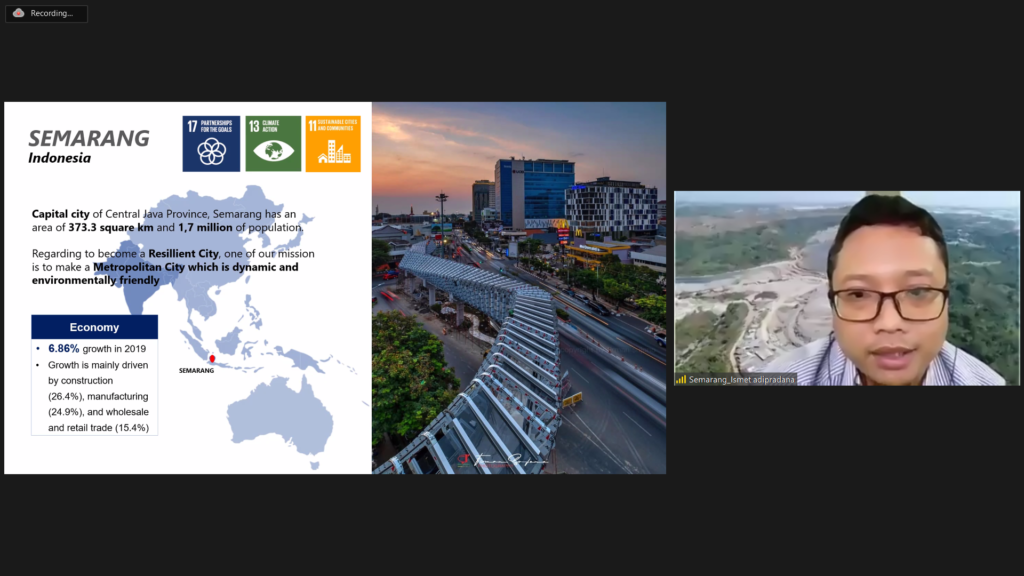
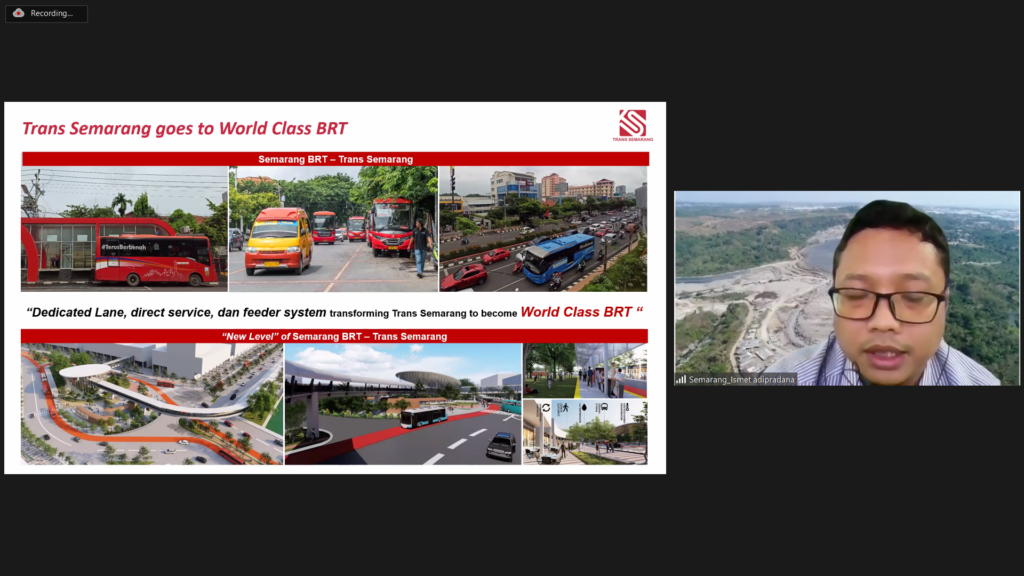
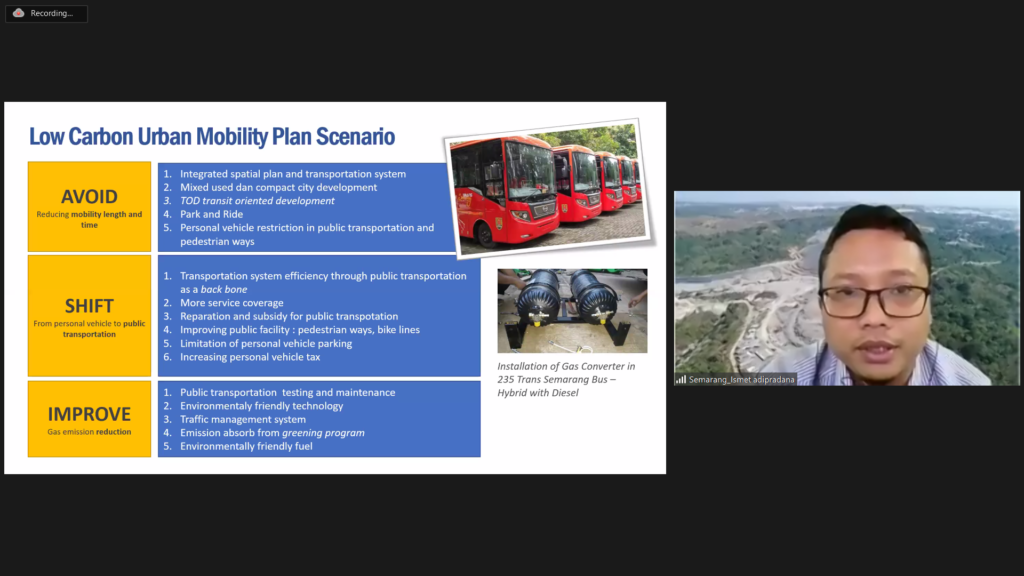
Mr. Ismet Adipradana represented Semarang City and presented its unique characteristics. Located on the northern coast of central Java, the city offers a hillside and coastal side, as well as urban and rural areas. Semarang maintains a degree of cultural diversity with the presence of historical buildings. The government of Semarang City has implemented a Bus Rapid Transit (BRT) system to overcome traffic congestion. Since the beginning of the operation, the BRT of Semarang City has evolved with the upgraded services. The city was looking for options to provide a dedicated lane, direct service, and a feeder system to achieve the “World-Class BRT” goal. Under the Low Carbon Urban Mobility Plan Scenario, the city has committed to improving urban mobility, focusing on public transportation. The meeting also included the Head of Sub-division Semarang’s Development Planning Agency – Dr. Safrinal Sofaniadi – as well as Ms. Rizki Pranata Paramita, Chief of the Foreign Affairs at Semarang Municipality.
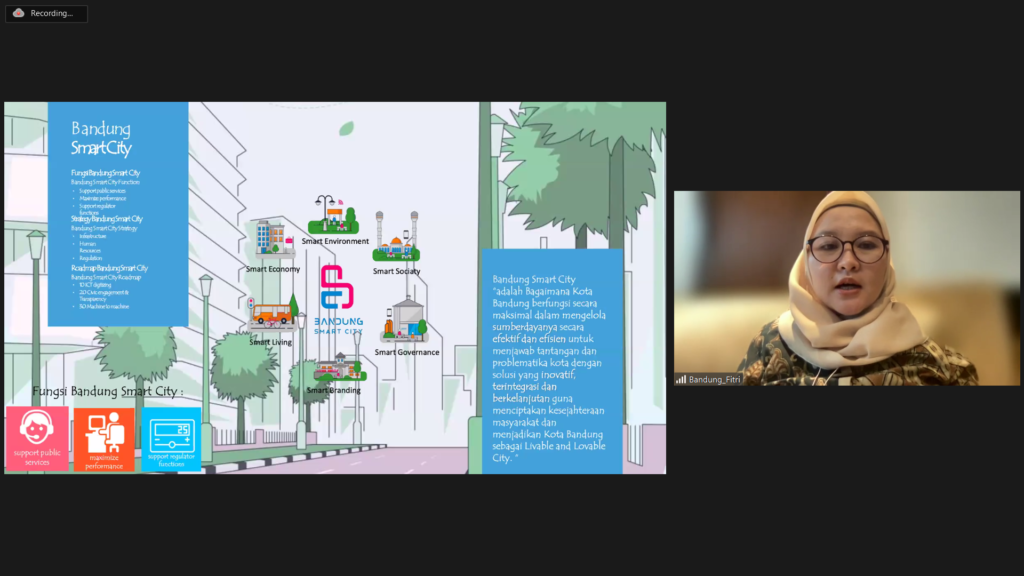
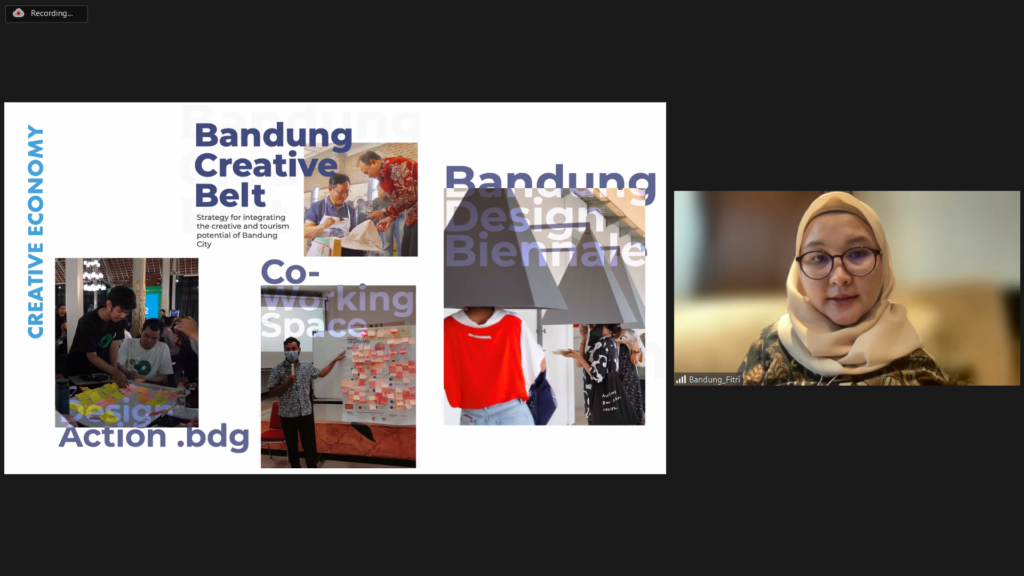
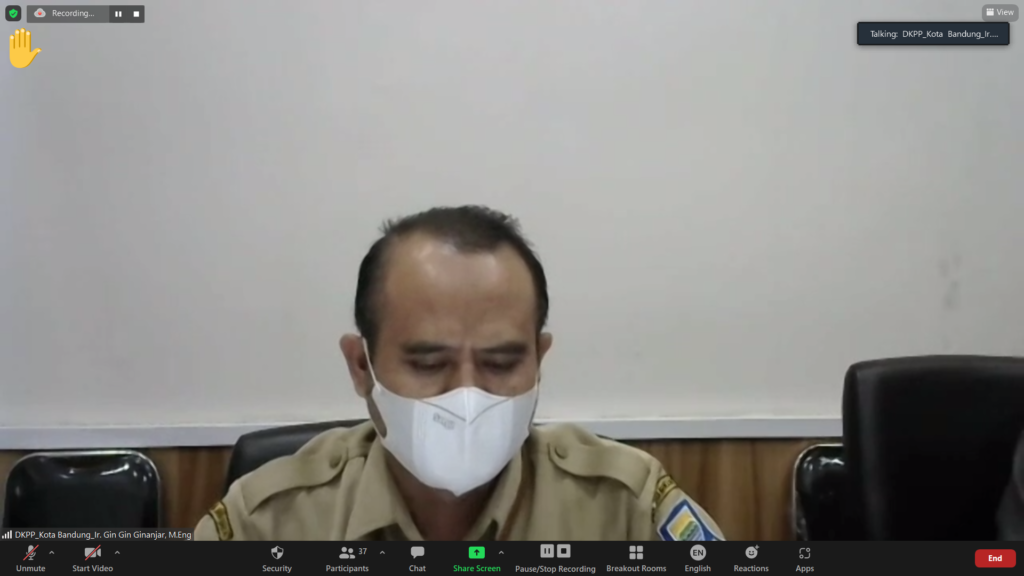
Bandung City was represented by different city departments, including Food Security & Agriculture (DKPP), Spatial Planning, Culture & Tourism, as well as Informatics and Communication. Ms. Fitri Nurramdani – from Spatial Planning – showcased the city’s attractiveness with the great view of surrounding mountains, splendid architectural designs, culinary items, and local culture and values. Bandung City is known as an innovative hub for creativity and entrepreneurship. With many initiatives driven by the city’s young demographic, Bandung hosts a variety of events to encourage the development of creativity. The most happening event is the Bandung Design Biennale. With its Smart City plan, the city has managed the resources to solve various challenges by utilising innovative, integrated and sustainable digital solutions towards a Liveable and Lovable City. Next, she presented the journey of Bandung City toward National Green Building Standardisation since 2015. Further, she elaborated the city’s remarkable work to support family and community food security through the development and urban agriculture empowerment (urban farming) of unproductive land, called “Buruan Sae”. Mr Gin Gin Ginanjar – Head of the DKPP – and further colleagues from the DKKP contributed to the discussion as well.
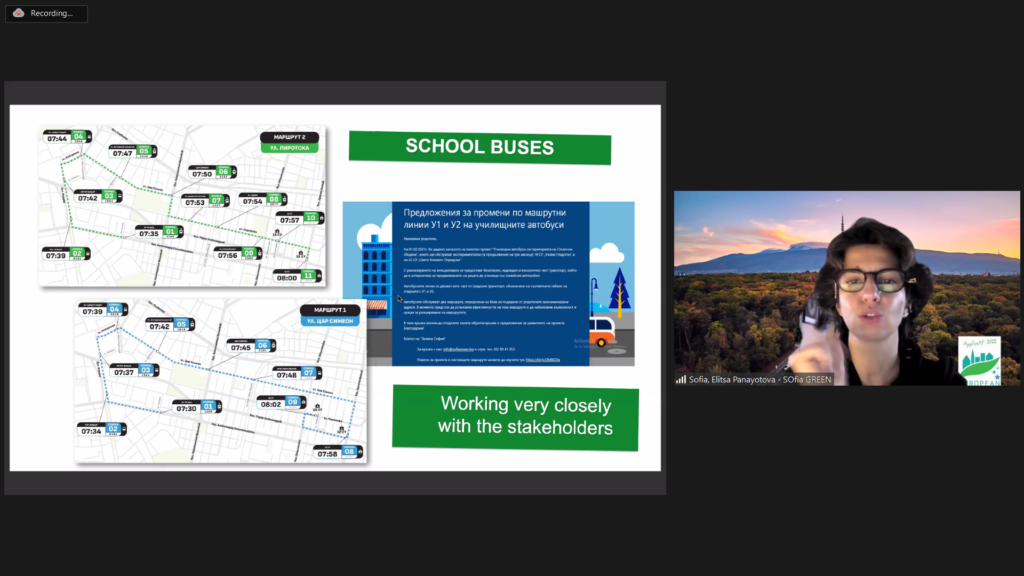
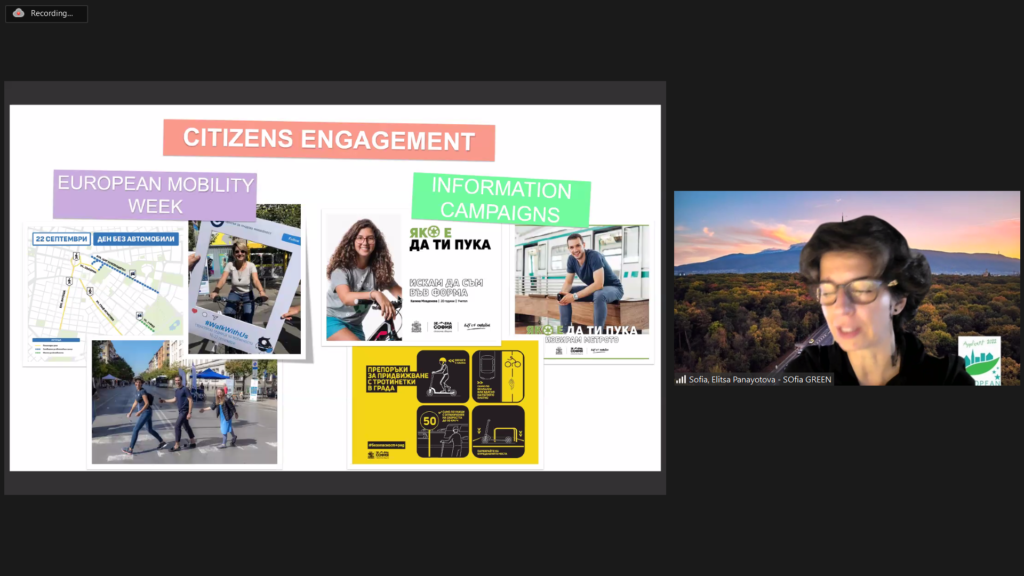
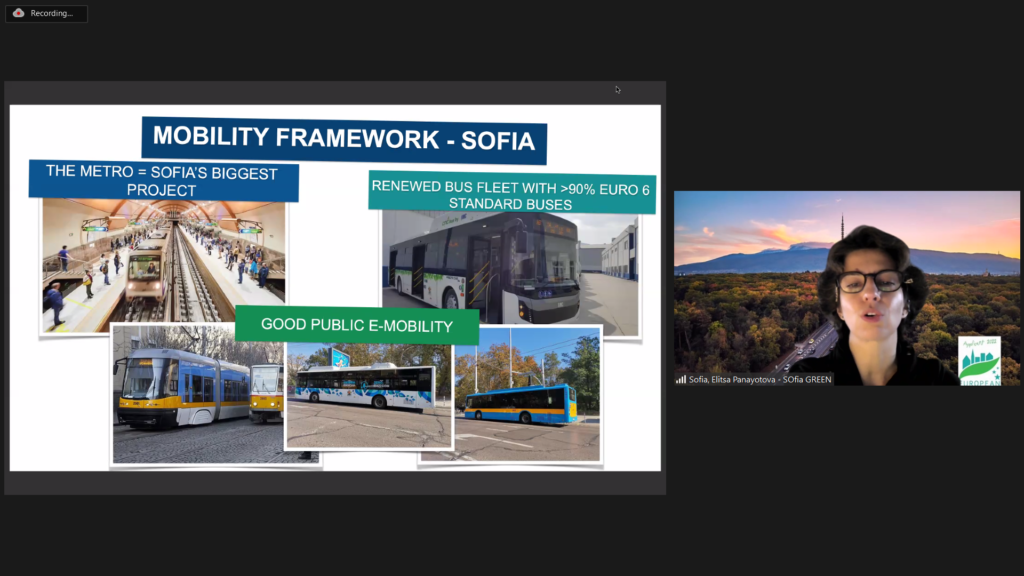
Presenting Sofia City at the meeting was Ms. Elitsa Panayotova, Coordinator at SOfiaGREEN – Sofia Development Association, who highlighted various projects taking place under the mobility framework. These included The Metro as the most significant project, shared mobility services, micro-mobility and school buses. Citizen engagement was carried out through European Mobility Week and Information Campaigns. And the digital solution was always maintained through working closely with citizens in redesigning municipal services. She added that there were three priorities towards mobility, namely 1) less ownership of private vehicles, 2) shared mobility expansion and 3) a smaller perimeter of daily commutes.
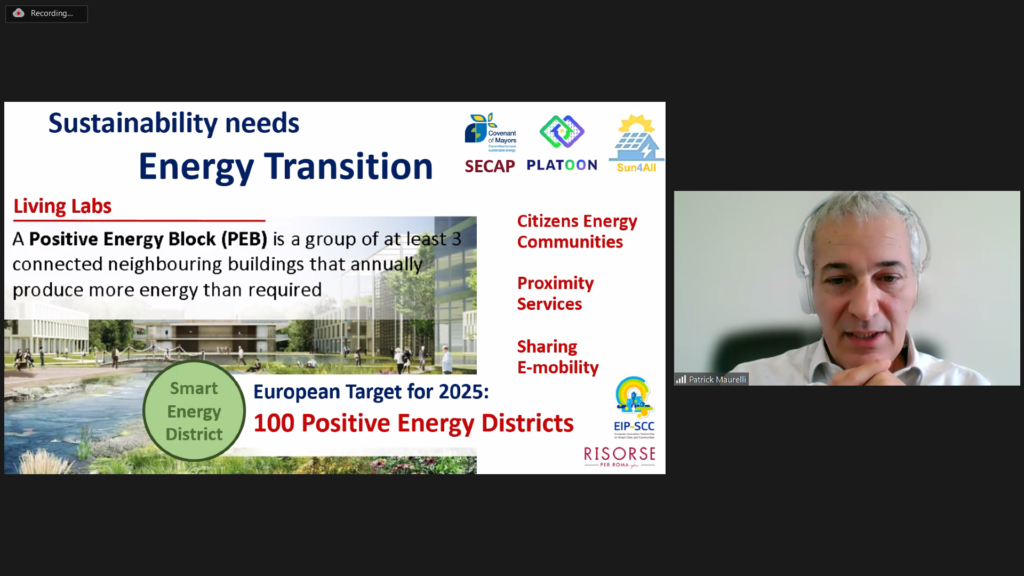
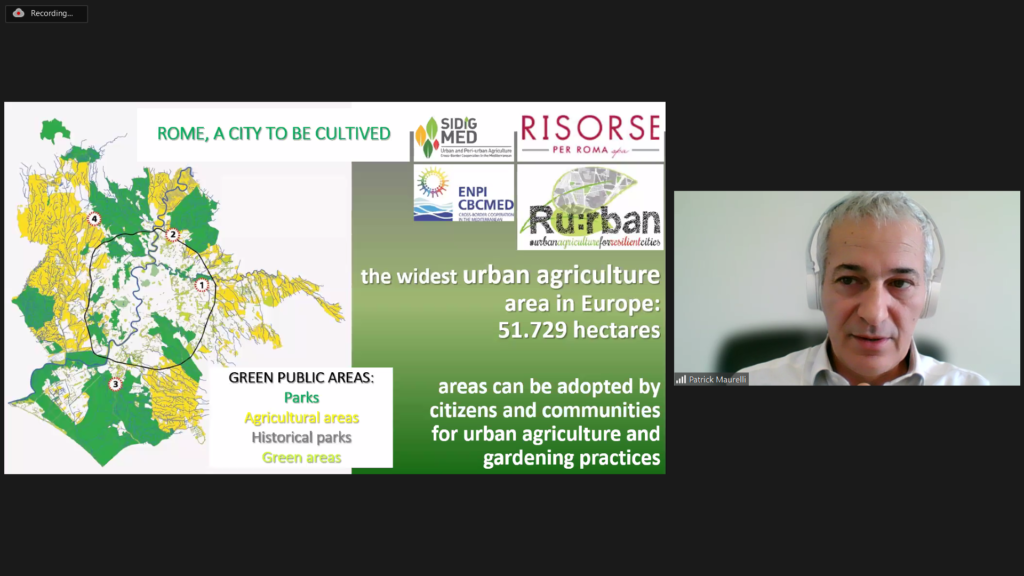
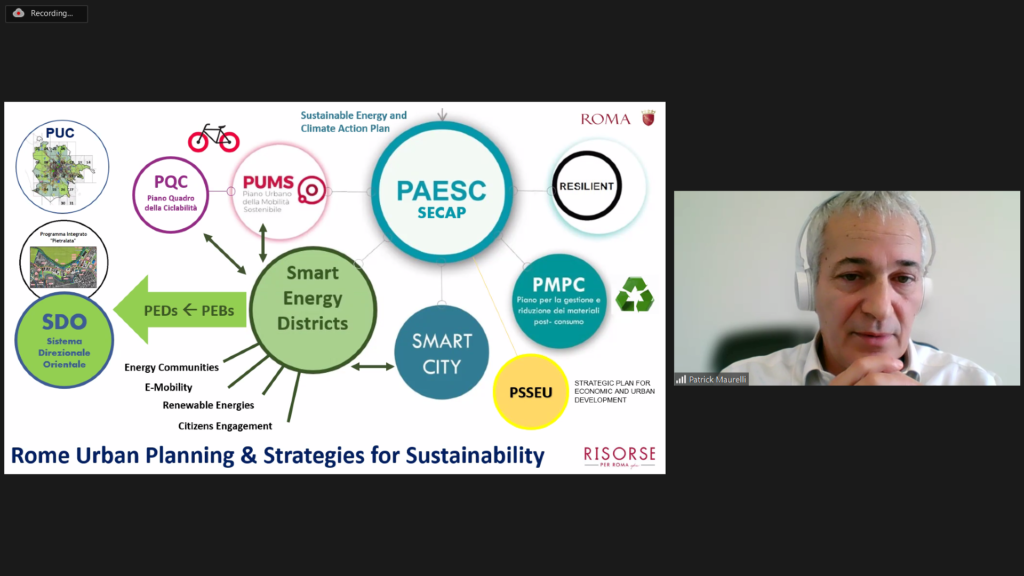
Last but not least, Dr. Patrick Maurelli, Senior Advisor at Risorse per Roma SpA, represented Rome City. With a population of 2.9 million, Rome is a leading destination for pilgrims and tourists. He emphasised Roma’s involvement in previous cooperation with Yantai City of China under the International Urban Cooperation (IUC) programme in 2018-2020. The recent Sustainable Energy and Climate Action Plan (SECAP) addressed the energy efficiency in buildings, he added. Further, he highlighted the role of Roma as the largest agricultural municipality in Europe. This was evidenced by the excellent urban farming community and an advanced governance system. Risorse per Roma SpA was also represented by Franco La Torre – European Projects Officer Fusilli – who is responsible for the Food 2030 Living Lab of the City of Rome. CITERA Research Centre Sapienza University of Rome was represented by Dr. Flavio Rosa.
After the city presentations, Ms. Sri Indah Wibi Nastiti of the Association of Indonesia Municipalities (APEKSI) provided comments. She appreciated the cities’ willingness to exchange knowledge and share best practices under the IURC framework. She expressed APEKSI’s commitment to supporting Indonesian cities to ensure stronger cooperation.
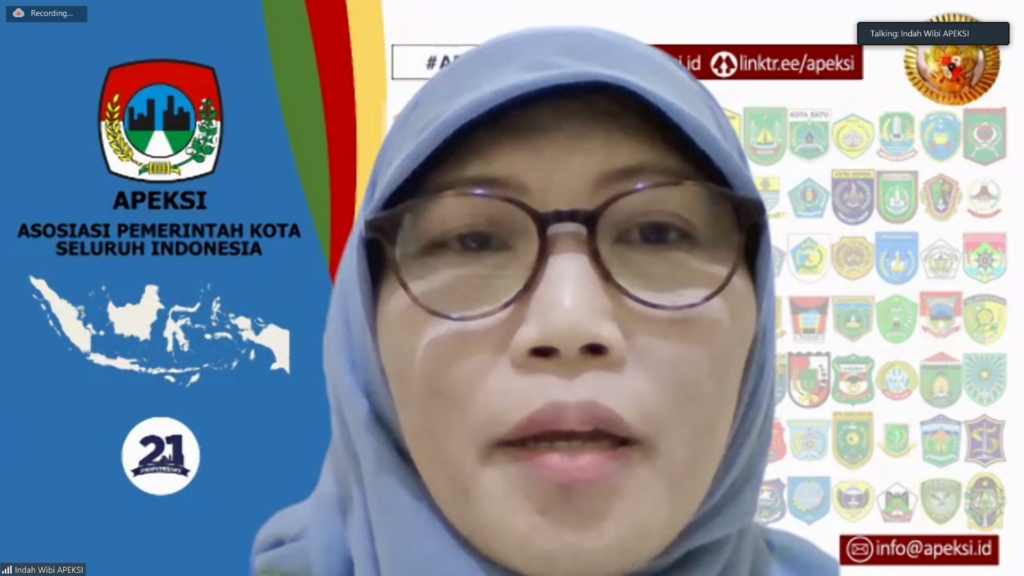
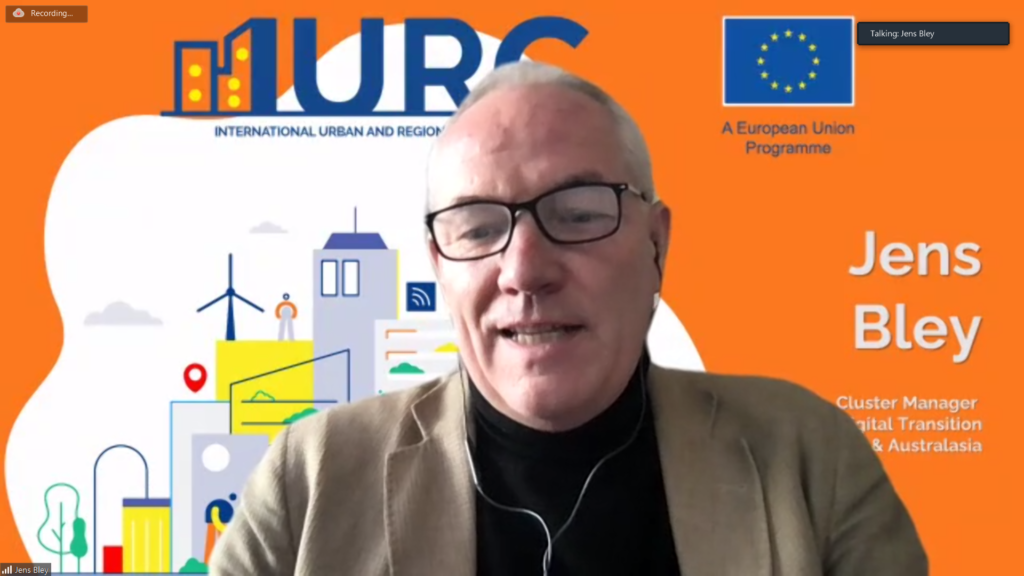
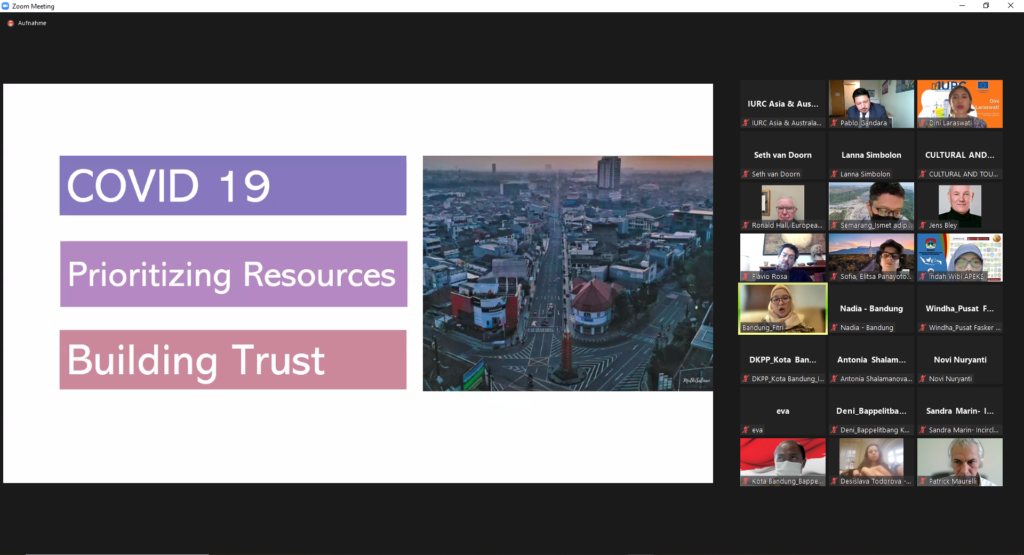
Mr. Jens Bley, Cluster Manager Smart City & Digital Transition, came up with perspectives on the cooperation. He highlighted possible pilot projects and provided some examples from previous cooperation under the IUC programme.
To follow up the cities’ question during the Q&A session, Pablo Gándara, Team Leader of IURC Asia & Australasia, explained the next step and the final output the programme hopes to achieve. The cities also learned to start thinking of the focus area of cooperation. To close the meeting, Mr. Gandara expressed his gratitude for the participants’ contribution. Also, he stated that the IURC team was looking forward to working with the four cities and would follow up with bilateral meetings on a monthly and thematic-focused basis (i.e. one topic per month until the first study visit).
